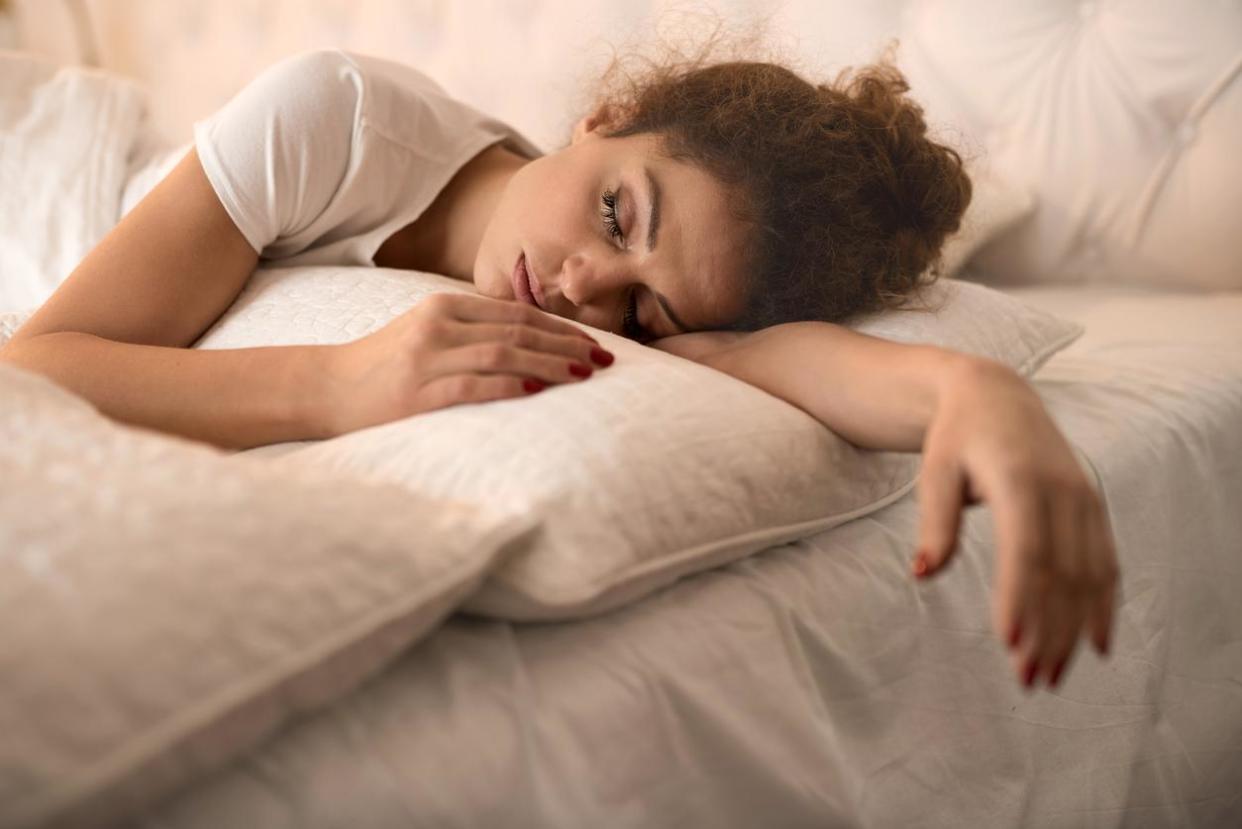Sleeping beauty diet: Women are taking sedatives to get thin risking dangerous side effects

Sometimes when you have a lie-in at the weekend, you end up missing breakfast because it’s nearly lunchtime already. No big deal, right?
If you’re asleep, you can’t eat. And people have used this as a weight loss technique for decades.
But some are taking it to extremes - such is the thinking behind the so-called ‘Sleeping Beauty Diet.’
The diet advises sleeping for abnormally long periods of times, even using sedatives to do so, to stop yourself eating.
On the lighter end of the scale, a good night’s sleep has been proven to boost health and wellbeing, but some people encourage sleeping for 20 hours a day by using sleeping pills and sedatives, which can be highly addictive.
There is also high potential for overdose. It’s a big risk to take in the quest to get thin.
The idea has been seized by women in pro-anorexia online forums, where they share their regimes of extreme sleeping and fasting.
“I just take some really strong pain killers they usually dope me out and I'll nap for hours. They kind [of] mess with your stomach and curb your hunger a bit so I do it all the time,” wrote one.
“I love sleeping to avoid food. It's pretty easy for me because I'm tired ninety-nine percent of the time,” said another.
“I just go ahead and fall asleep to avoid any possible binges and eating,” wrote a different woman.
But experts believe the diet - if it can really be called a diet - is dangerous.
“If people have to rely on medications to produce sleep - particularly [meds] like benzodiazepines, which are addictive - it's putting the person at risk of addiction,” Dr. Tracey Wade, a professor at the Flinders University School of Psychology, told Broadly.
“It's not only getting the body to sleep more than it needs to; they'll also have to use higher and higher dosage levels to get the desired effect.”
And Dr Wade points out that if you’re sleeping 20 hours a day, you can’t live your life:
“This is really taking it to the nth degree; they literally can't participate because they're sleeping,” she says. “They'd have increased social isolation, and in turn there's an impact on their mood, which can cause depression.
“We know that depression also triggers disordered eating. It sounds like it would actually just push people more firmly into the vicious cycle that the eating disorder creates.”
Wade believes the diet may appeal to people who are already depressed or struggling with an eating disorder: “the idea of opting out of life and staying in bed might be attractive,” she says.
“But it doesn't talk about how you'll manage the waking hours, where you'll be very hungry and very disorientated with increasing levels of depression and nutritional deprivation.”
In short, it’s not a good idea.

